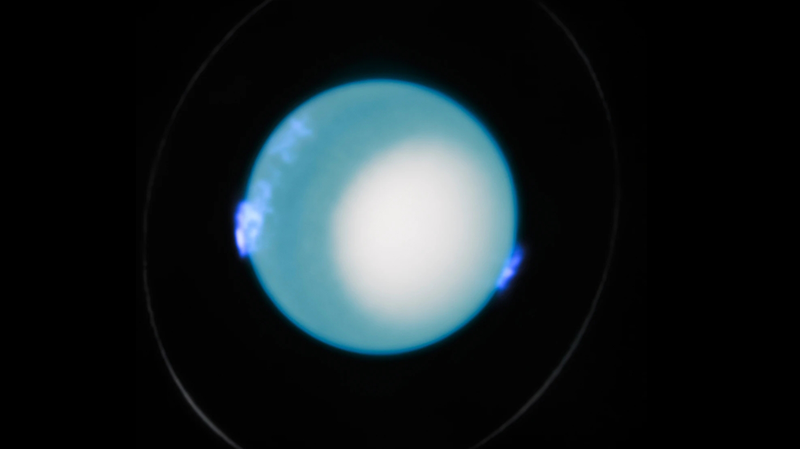Hey space explorers! A recent breakthrough has shed new light on the ice giant Uranus. Scientists using the Hubble Space Telescope found that a day on Uranus now lasts 17 hours, 14 minutes, and 52 seconds—28 seconds longer than what NASA's Voyager 2 estimated back in the 1980s.
A French-led team, with lead researcher Laurent Lamy from the Paris Observatory, analyzed a decade of aurora observations at the planet. These dazzling light shows near Uranus' magnetic poles provided the accuracy needed to refine its rotation period.
This innovative method not only deepens our understanding of Uranus—the seventh planet from the sun—but also opens a new window to study other worlds with auroras and magnetospheres. And by the way, it takes Uranus about 84 Earth years to orbit the sun!
Published in Nature Astronomy and coming just before the 35th anniversary of Hubble's launch (delivered to orbit by the space shuttle Discovery in 1990!), these findings remind us how dynamic our universe truly is. 🚀✨
Stay curious, keep exploring, and let the stars inspire your next adventure!
Reference(s):
cgtn.com




